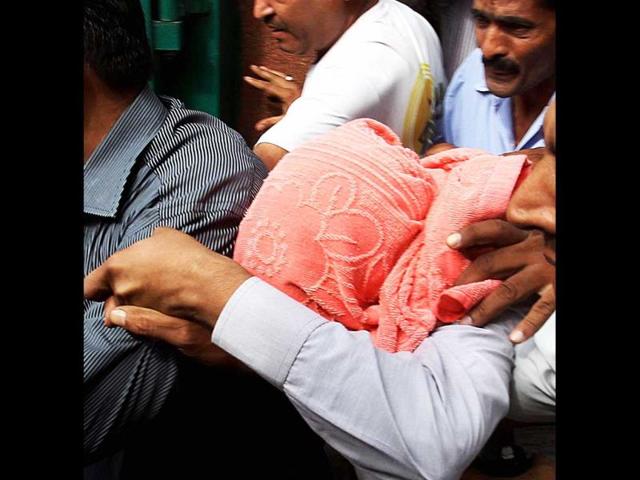Did teen gang-rape accused get away 'lightly'
The Constitution authorises the state to enact special laws to protect children and does not recognise the difference between petty and heinous crimes, the rapist-killer gets the same treatment a child would have got for petty theft.
Twenty-eight months more in a reformatory, and the juvenile convict in the December 16 Delhi gang rape case will be free. Why? He was less than 18 years of age when he took part in the brutal rape and murder — along with five adult men — of a 23-year-old woman.

Had he been 18 the day he committed the crime, he would probably be facing the gallows by now, as the woman died on December 29 in a Singapore hospital. But being a juvenile, he cannot be produced in an adult court or given punishment that an adult would have received.
Since the Constitution authorises the state to enact special laws to protect children — those under 18 years, according to the Juvenile Justice (Care and Protection of Children) Act, 2000 — and does not recognise the difference between petty and heinous crimes, the rapist-killer gets the same treatment a child would have got for petty theft.
The Act of 2000 focuses on alternative sentences and ensures that the juvenile is kept out of the jail. Instead, he should be kept on probation, parole, and diversionary programmes. But last month, the Supreme Court admitted a petition filed by former MP Subramanian Swamy, seeking a proper interpretation of the definition of the “juvenile” under the Act.
It was more or less in line with the UN Convention on Child Rights, 1989, which says children should be protected from custody and when deprived of liberty, they should be treated with humanity and respect. A child can be imprisoned only for the shortest period of time.
The basis of raising of the age limit to 18 under the JJ Act, 2000 — the 1986 version of the Act had fixed the age limit at 16 years for boys and 18 for girls — was article 1 of the Convention of the Rights of the Child.
But while generally treating 18 years to be the age till which everybody should be treated as a child, the Convention indicates that it could be changed if national laws recognise a lower age limit for juveniles.

Supreme Court advocate Surat Singh said, “The purpose of the amendment was to make sure that a first-time juvenile offender does not become a criminal in the company of hardened criminals in jails.” But he said it should not be applicable to a juvenile convicted of a heinous crime.
Backing the idea of going back to the previous age limit, Singh said, “The law has to march with life.
"Certain crucial facts of the ground reality cannot be overlooked. The age of criminals is going down and children are losing their innocence at an early age due to the internet, TV and mobile phones.”
In many countries, including several states in the US, juveniles involved in heinous crimes are tried in adult courts and punished like adults.
Singh said, “I strongly recommend that the age of juveniles be reduced to 16 years, at least where juveniles are involved in heinous crimes.”
But there could be other options. Experts say even if the age limit is not changed, a separate category can be created for juveniles between 16 and 18 years and they can be tried in courts meant for adult offenders and given harsher punishments.



